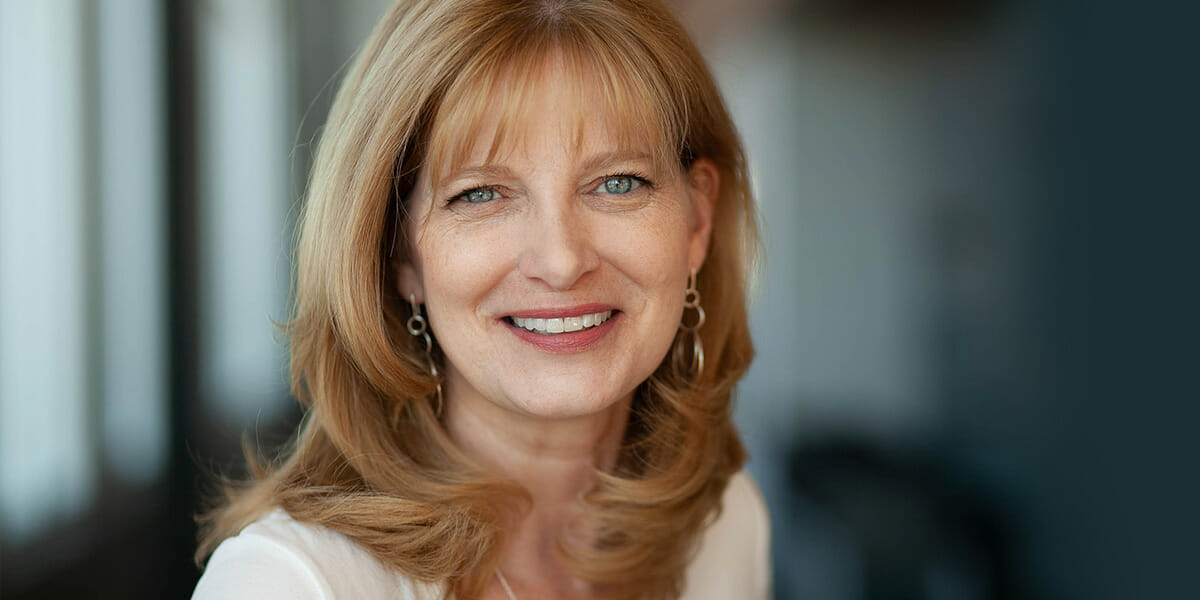Meet Our Team: Julie Kemink, Chief Clinical Officer
Julie Kemink has been LifeSource’s Chief Clinical Officer since 2016. We had the opportunity to sit down with her to learn about her role in saving lives, lessons learned during her time at LifeSource and her philosophy as a leader.

Update: Julie Kemink has retired from LifeSource and the Chief Clinical Officer role since this post was created.
What Do You Do at LifeSource?
I lead our clinical team operations at LifeSource and have the privilege of leading the team members who recover organ, eye, and tissue donations to meet our mission.
What Did You Do Before Working Here?
I started as a surgical nurse working in the operating room. I helped with kidney and cornea transplants and that really inspired me. My career path has been linked to donation and transplantation in one way or another.
What’s One of Your Defining Characteristics?
I’m inquisitive. I love to ask questions and I’m always looking for more information about things – I’m the person googling information in a meeting when someone mentions something is not familiar to me. I want to understand the “why” of what’s happening. In our work I’m always wondering how we could be doing things better and how we can improve.
I’ve always had a passion for learning. I wish the internet was around when I was in high school.
What’s One of the Things You’ve Learned as a Leader at LifeSource?
How differently people respond to change – some welcome it and others don’t. I like change, but as a leader I appreciate that some people don’t. As an organization we need to have a balance, I think it takes both of those personality types to make donation possible.
During the Time You’ve Been at LifeSource, What Are You Most Proud Of?
I’m very proud of the Donor Family Aftercare program. I stared that program literally with recipe cards. When we had a donation I would write down the family’s information and put it in the 3 month box. After I contacted them, I moved them to the next box and made sure to connect with them 6 months after the loss of their loved one. I’ve had the opportunity to watch that program grow over the years and it makes me incredibly proud to see the support and care we give to families during a difficult time.
For our first Donor Family Gathering people sent in photos of their loved ones and we converted them to slides, actual 35mm slides, that we showed at the event. Because it was our first time doing this event, people were worried that nobody would come – maybe people didn’t want to go through those difficult emotions again – but as someone who lost family members at a young age, I felt it would be a healing experience. Those losses never really leave you. We had 200 people come to that first event and we’ve had a family gathering every year since. I’m very proud of that.
What’s the Hardest Part of Doing This Work?
For clinical staff, our work isn’t done when we leave the OR. There’s no “wrapping it up” at the end of the day because the wait list is always out there and there are also people waiting for organ transplants to save their lives.
What’s Something People Ask You About Working in Donation and Transplantation?
People ask me how I can do this job because it sounds “sad.” I tell them that it’s actually a job filled with joy.
In particular, going through donation paperwork with families is often an opportunity for them to “walk down memory lane” and we get to walk with them, hear stories, learn about their loved one and reminisce.
What Do You Like to Do Outside of Work?
I really love to cook and bake. Cooking and baking is a time in my life where there is a start and a finish.
When I interview people I talk about having things (passions, hobbies, etc.) outside of work, I think it’s really important to have those healthy outlets. In our work there are days that are incredibly challenging, and I encourage people to have healthy outlets for themselves.
What Advice Do You Have for Future Leaders?
It’s important to know yourself in order to lead.
Knowing myself has helped me guide others to get to where they want to be. As a leader, it’s important to understand that success is defined by the individual, someone else’s definition of success may be different than my definition of success and my job is to help them reach that place they’ve identified for themselves.
Your job as a leader is to help everyone be successful.
 Skip to main content
Skip to main content
